The Benefits Of In Person Sessions For Music Production
As technology advances, it has become easier for musicians to promote their music and connect with people online. However, meeting people in person can still provide better chances for long-lasting work relationships. Music festivals provide a unique opportunity for musicians to connect with other artists, label owners, festival staff, and industry professionals.
I might sound old here, but the only thing that I think made a huge difference for me in my career advancement was that I had the chance to go out every week for years and meet up with a circle of people that I could share with. In that circle would be music producers but also, non musicians that would attend regularly and with who I could connect about music, what they love and see how music was impacting them. That community all grew together, supported each other and everyone got a chance to have some success. For a while, Montreal’s scene was recognized as very prolific and I’m pretty sure that meeting everyone on a regular basis made a difference.
One thing about being with people in events is related to having common peak experiences. Those create meaningful connections, something that people talk about years after. I sometimes hear people in a restaurant talking about past restaurants and not really commenting on the present moment. Same for events.
A peak experience is a term used to describe a transcendent, ecstatic, or otherwise profound moment or experience that can involve a sense of unity, oneness, or connection with something greater than oneself. This concept was first introduced by humanistic psychologist Abraham Maslow in the 1960s and was later popularized by other psychologists and self-help authors.
Peak experiences can occur in a variety of contexts, such as during artistic or creative pursuits, spiritual or religious practices, sports or physical activities, or even in everyday moments of connection with nature or other people. They are often characterized by feelings of euphoria, awe, and deep insight or understanding.
Some common features of peak experiences include a sense of timelessness or time dilation, a feeling of being fully present in the moment, a heightened sense of clarity and perception, and a sense of personal transformation or growth. Peak experiences can be transformative and have a lasting impact on a person’s worldview, values, and sense of self.
One peak experience for me that I’ll never forget was a night I heard Villalobos play at Club Der Visionaere. He was just from another dimension and the people I was with were all listening, looking at each other in disbelief. There was no one talking as I often see in clubs.
As a musician and artist, one thing that you want is to design such an experience. To go out is one way of living the way people do as well. This makes important connections.
Here are three important reasons why in-person contacts are impactful for musicians.
1. Building Trust and Personal Connections
Meeting someone in person builds trust and personal connections that are difficult to establish online. By attending music festivals and other industry events, musicians have the opportunity to shake hands, share stories, and make personal connections with other artists and industry professionals. These personal connections can lead to long-lasting work relationships, collaborations, and even friendships.
2. Opportunities for Collaboration
Music festivals bring together musicians from different genres and backgrounds, creating opportunities for collaboration. By meeting in person, musicians can discuss their music and explore possibilities for future collaborations. They can also exchange ideas and learn from each other, leading to creative breakthroughs and new musical styles.
3. Gaining Exposure and Networking
Attending music festivals and other industry events provides exposure and networking opportunities for musicians. By meeting industry professionals such as label owners, booking agents, and festival staff, musicians can gain exposure and potentially secure future gigs and opportunities. Networking is also an essential aspect of building a successful music career, and in-person events provide a great opportunity to expand one’s network.
“The Circle of 5”
The concept of the “Circle of 5” is important for musicians who seek validation for their music. Having a diverse set of contacts that can provide feedback and support can help accelerate the validation process and move the musician’s career forward. The five types of contacts are as follows:
- Close Friend Non-Musician – This person provides an outsider’s perspective and can provide honest feedback on the music’s appeal to a general audience.
- Close Friend Musician – This person is familiar with the musician’s style and can provide constructive feedback on the music’s technical aspects.
- Music Producer with Similar Production Experience – This person can provide feedback on the music’s production quality and offer suggestions for improvement.
- Someone from the Music Industry – This person can provide insight into the music industry and offer advice on how to navigate it.
- Mentor – This person is an experienced musician or industry professional who can offer guidance and support to the musician.
Having a circle of five contacts provides the musician with diverse perspectives and feedback, which can help them refine their music and move their career forward. It is essential to build relationships with these contacts over time to ensure their support and continued input.
Too often I work with emerging artists struggling and most of the time, what I see, are people who don’t go out enough to meet other.
My tips for best impression in festival:
- Contact people with the objective to get to know them, not to tell them of a business agenda.
- Be yourself, let the ego aside. Don’t talk about your achievement and what you do best.
- Don’t prove anything, avoid confronting people on things you disagree with. Sometimes if you meet artists you love, it doesn’t mean you are on the same page. No need to tell them.
- Be generous and adopt a listening role. People tend to appreciate others who pay attention to them.
- Have trust that meeting people, even if it doesn’t seem to bring anything, is the right thing to do and that it will pay off on the long term.
Conclusion
While technology has made it easier for musicians to promote their music online, in-person connections are still valuable for building long-lasting work relationships. Music festivals provide a unique opportunity for musicians to connect with other artists and industry professionals, leading to collaboration, exposure, and networking opportunities. The concept of the “Circle of 5” is also essential for musicians seeking validation and support for their music. By building relationships with these contacts over time, musicians can refine their music and accelerate their careers.

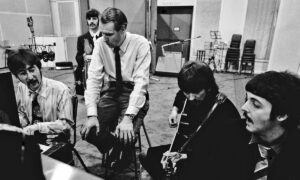
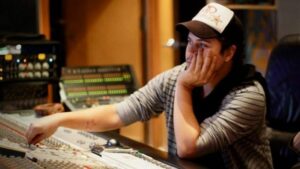
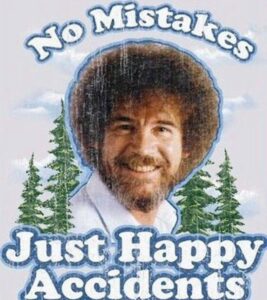
 One thing that I love doing is to work with unestablished artists. It’s why I have
One thing that I love doing is to work with unestablished artists. It’s why I have 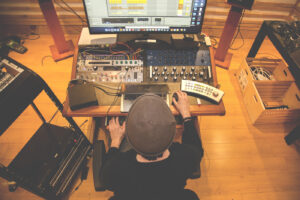 Not all genres are the same, and they require different equipment. If you were to record a cowboy outlaw record, it’s probably not the best idea to go to a micro house producer. However, I have had rock bands come to me because they wanted their album to sound electronic in nature, despite it being a rock album.
Not all genres are the same, and they require different equipment. If you were to record a cowboy outlaw record, it’s probably not the best idea to go to a micro house producer. However, I have had rock bands come to me because they wanted their album to sound electronic in nature, despite it being a rock album.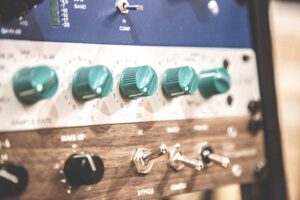 Perception is reality, and some people have different perceptions on what things are supposed to be. Especially when dealing with their art. With audio, producers often get married to their sounds, thinking that they should be specifically in this spot in the mix, when, in reality, it probably won’t translate the way you want it to. This may come from hearing said sound over and over again in whatever room, or on whatever medium they were listening to while they were making it. However, in a well treated room, with calibrated equipment, or conversely, in a club with a good, or poor sound system, it may not translate exactly how you anticipate. Some people are more judicious about this, and accept the reality. However, some you just can’t please. So is the way of the artist.
Perception is reality, and some people have different perceptions on what things are supposed to be. Especially when dealing with their art. With audio, producers often get married to their sounds, thinking that they should be specifically in this spot in the mix, when, in reality, it probably won’t translate the way you want it to. This may come from hearing said sound over and over again in whatever room, or on whatever medium they were listening to while they were making it. However, in a well treated room, with calibrated equipment, or conversely, in a club with a good, or poor sound system, it may not translate exactly how you anticipate. Some people are more judicious about this, and accept the reality. However, some you just can’t please. So is the way of the artist.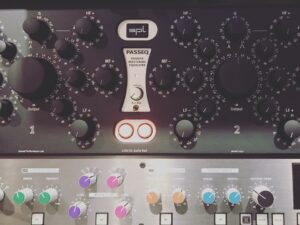 Engineers get that artists have a lot of things to say about their work, and may use poetic language in order to communicate it. And this prose sometimes leads to elaboration. However, there is a saying in sales, called K.I.S.S, which stands for Keep It Simple, Stupid. This is because people understand things if they are simplified. No need to get technical, or elaborate. Just say what you mean. A good way of easily communicating is to provide examples of things that already exist. Let’s be real, nothing is new under the sun, so if we can pinpoint where that idea is coming from, then maybe it can be recreated, with a flourish that makes it your own.
Engineers get that artists have a lot of things to say about their work, and may use poetic language in order to communicate it. And this prose sometimes leads to elaboration. However, there is a saying in sales, called K.I.S.S, which stands for Keep It Simple, Stupid. This is because people understand things if they are simplified. No need to get technical, or elaborate. Just say what you mean. A good way of easily communicating is to provide examples of things that already exist. Let’s be real, nothing is new under the sun, so if we can pinpoint where that idea is coming from, then maybe it can be recreated, with a flourish that makes it your own.